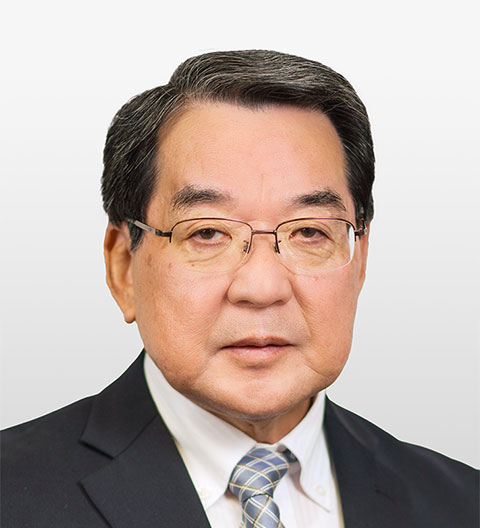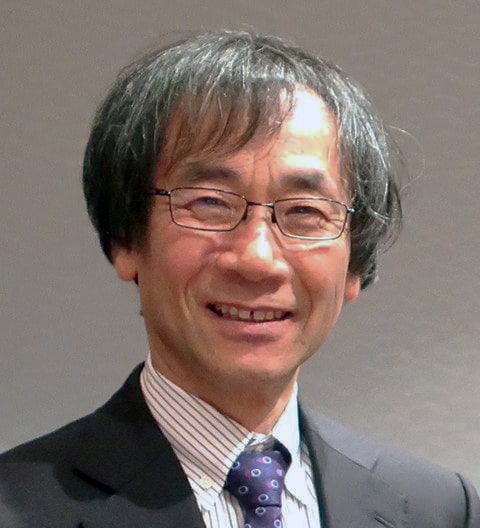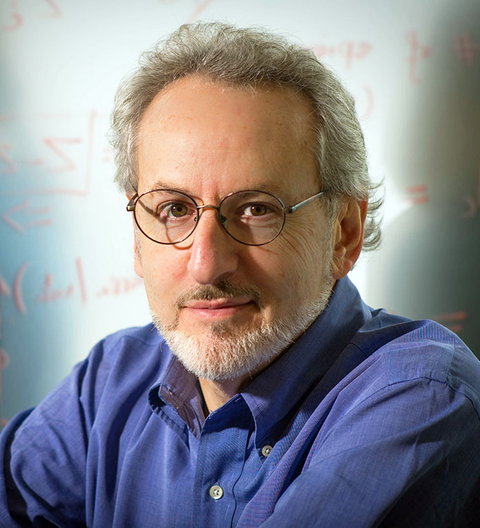The three scientists will be receiving the NIMS Award 2022 for their outstanding achievements on an international level in the field of “Functional Materials,” specifically “biomaterials research/science leading to innovative progress of medical technologies”
NIMS Award Ceremony / NIMS Award Winning Lecture
2022 Award Winners

Research Achievement
Prof. Okano for the “development of cell sheet engineering using temperature-responsive polymers and its application to regenerative medicine,” Prof. Ishihara for the “pioneering work in the development of biomimetic polymer biomaterials and their medical applications,” and Prof. Ingber for the “proposal of the cellular tensegrity model and the invention of organ-on-a-chip technology." They have been giving a tremendous impact not only in academia but also in industry.
NIMS Award Ceremony / Winning Lecture
Awardee Profiles

Prof. Teruo Okano
- Distinguished Adjunct Professor, Department of Pharmaceutics and Pharmaceutical Chemistry and Director, Cell Sheet Tissue Engineering Center, School of Medicine and College of Pharmacy, UNIVERSITY OF UTAH, UT, USA
Research field
Micro-nanodomain Structured Surface, Stimuli-Responsive Polymers, Hydrogels, Modulated Control of Drug Release, Artificial Organs, Tissue Engineering, Regenerative MedicineResearch achievement title
Development of cell sheet engineering using temperature-responsive polymers and its application to regenerative medicineResearch summary
Inventing smart cell culture dishes coated with nano-leveled thickness of temperature-responsive polymers, Prof. Okano has developed a world-leading technology that allows for easy harvesting of cells as sheets simply by lowering the temperature and without cell-damaging enzymatic treatment. The technology has been applied to regenerative medicine, achieving the innovative therapy where transplanting the cell sheets to diseased tissue and organs. In particular, the heart of a patient with severe heart failure enables the patient to recover enough by cell sheets to walk without an artificial heart.
Impact on the academic and industrial sectors
The cell sheet technology, which started as materials science research, now leads innovation in the field of regenerative medicine. Clinical trials are being conducted not only for the treatment of heart failure, but also for the regeneration of corneal and periodontal tissues, prevention of stenosis after esophageal cancer resection, among others. Further development is expected as the world’s first, cutting-edge medical technology originating from Japan.

Prof. Kazuhiko Ishihara
- Emeritus Professor, The University of Tokyo, JAPAN
Research field
Polymer Chemistry, Biomaterials Science and EngineeringResearch achievement title
Pioneering work in the development of biomimetic polymer biomaterials and their medical applicationsResearch summary
Prof. Ishihara has contributed to the development of biomimetic polymers inspired by cell membrane surface structure and function. He has also shown that super-hydrophilic biomimetic polymers can dramatically improve the functionality of medical devices that are implanted in the body for an extended period, such as artificial hearts and vascular stents, by inhibiting protein adsorption and cell adhesion, and has continued to demonstrate the technology’s innovative potential for use in surface treatment of a range of medical devices.
Impact on the academic and industrial sectors
Prof. Ishihara’s achievements range from the molecular design of the polymers, establishing the method of synthesis, and basic research to the application of medical devices, thereby making a significant contribution to the advancement of medicine. For over 25 years, the biomimetic polymers have been used for the surface treatment of various medical devices such as contact lenses, artificial hearts, artificial lungs, catheters, vascular stents, cerebral aneurysm treatment systems, and artificial hip joints. The research achievements are highly valued both in academia and in industry. They have contributed to the growth and improvement of biomaterials science over the years, with their impacts spreading to a wide range of fields, including biomedical engineering and interface science.

Prof. Donald E. Ingber
- Judah Folkman Professor of Vascular Biology, Harvard Medical School and Boston Children's Hospital, USA
- Hansjörg Wyss Professor of Bioinspired Engineering, Harvard John A. Paulson School of Engineering and Applied Sciences, USA
Research field
Biologically inspired engineeringResearch achievement title
Proposal of the cellular tensegrity model and the invention of organ-on-a-chip technologyResearch summary
Inspired by the similarity between biological cells and the tensegrity architectures, the systems that stabilize their overall structure by balancing tensile and contractile forces through establishment of an internal prestress, Prof. Ingber showed the significant role that mechanical forces play in tissue and organ formation as well as cancer progression. Inspired by these insights and leveraging approaches from microchip manufacturing, Prof. Ingber created the organ-on-a-chip technology and demonstrated its applications to drug discovery and personalized medicine using these miniaturized organ mimics instead of experimental animals.
Impact on the academic and industrial sectors
Prof. Ingber’s research had a tremendous impact on various fields, such as mechanobiology, tissue engineering, and translational medicine. He also pioneered a new academic discipline called “biologically inspired engineering” and became the founding director of the Wyss Institute at Harvard University, which develops new engineering innovations based on this concept. Prof. Ingber also founded seven companies in fields ranging from organs-on-chips, 3D printing, and tissue engineering to medical devices, point-of-care diagnostics, and computer-assisted drug discovery. His achievements have been recognized not only in academia, but also in the world of art with his work being exhibited at many museums including MoMA, with their impacts spreading widely to multiple industries.
About the NIMS Award
NIMS has given the NIMS Award (NIMS Award for Recent Breakthrough in Materials Science and Technology) to a distinguished person or a group who had made significant progress in Materials Science since 2007.
The following four research fields are especially important Materials Science fields
that NIMS focuses on. NIMS Award
winners are selected from each research field in turn every year.
- “Materials for Environment and Energy”
- “Functional Materials”
-“Structural Materials”
- “Basic Materials Science”
Award candidates are nominated by world-leading scientists and fairly judged by the
NIMS Award Committee consisting of
neutral experts.

Past Winners
2017
-
Prof. John Ågren
(Royal Institute of Technology, Sweden)“Development of kinetic simulation packages for computational thermodynamics”
-
Prof. Bo Sundman
(Royal Institute of Technology, Sweden)“Development of thermodynamic calculation packages for computational thermodynamics”
-
Prof. Kiyohito Ishida
(Tohoku University, Japan)“Alloy design and development of structural materials based on thermodynamics of phase diagrams and microstructure”
2018
-
Dr. Masato Sagawa
(Daido Steel Co., Ltd., Japan)“Invention and practical application of neodymium magnets”
-
Prof. Terunobu Miyazaki
(Tohoku University, Japan)“Development of tunneling magnetoresistance elements capable of generating giant magnetoresistance at room temperature and application thereof to spintronics devices”
2019
-
Prof. Gerbrand Ceder
(University of California Berkeley, USA)“Pioneering data-driven materials research based on the first-principles calculations”
-
Dr. Pierre Villars
(Material Phases Data System (MPDS), Switzerland)“Development of Pauling File, inorganic materials database”
2020
-
Prof. Hiroshi Julian Goldsmid
(The University of New South Wales, Australia)“Pioneer work on bismuth telluride thermoelectric material and its application for large-capacity optical communication systems using the Peltier cooling phenomenon”
-
Prof. Kunihito Koumoto
(Nagoya University, Japan)“Development of environmental-friendly inorganic thermoelectric materials“
2021
-
Prof. Tsuneya Ando
(Tokyo Institute of Technology / University of Tokyo, Japan)“Fundamental theoretical studies on quantum states of low-dimensional materials“
-
Prof. Allan H. MacDonald
(University of Texas at Austin, USA)
Prof. Pablo Jarillo-Herrero
(Massachusetts Institute of Technology, USA)“Pioneering work of new quantum physics by twistronics“
